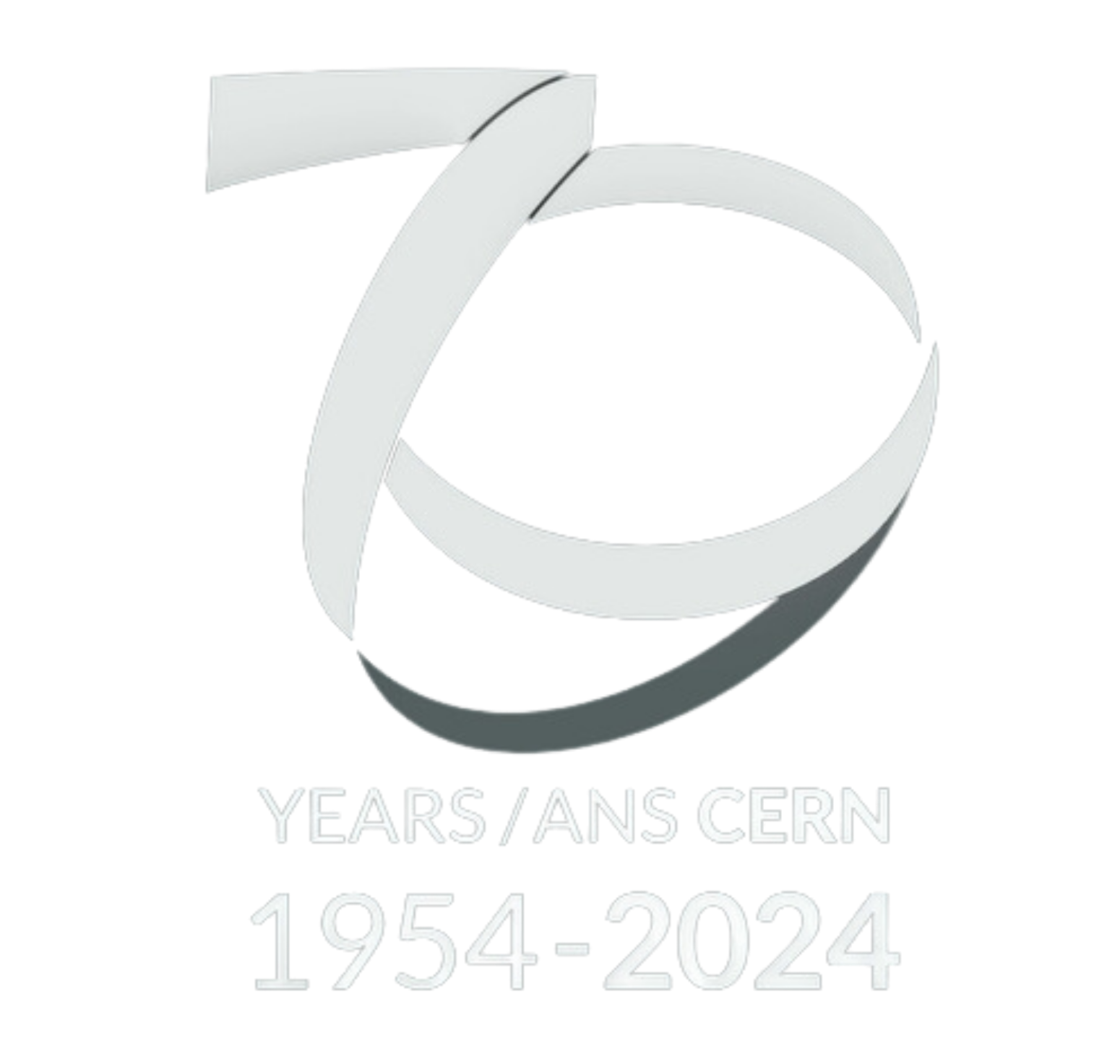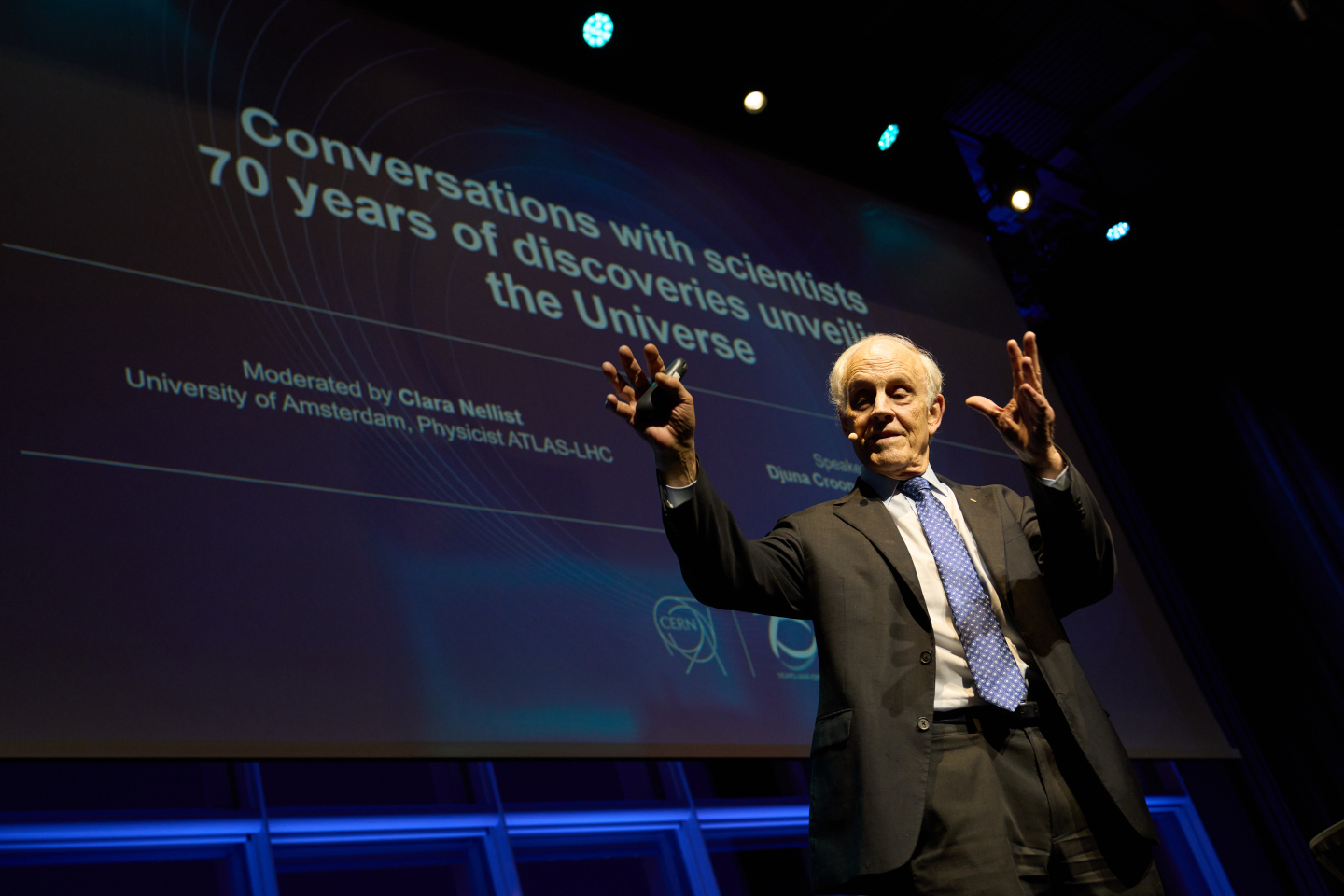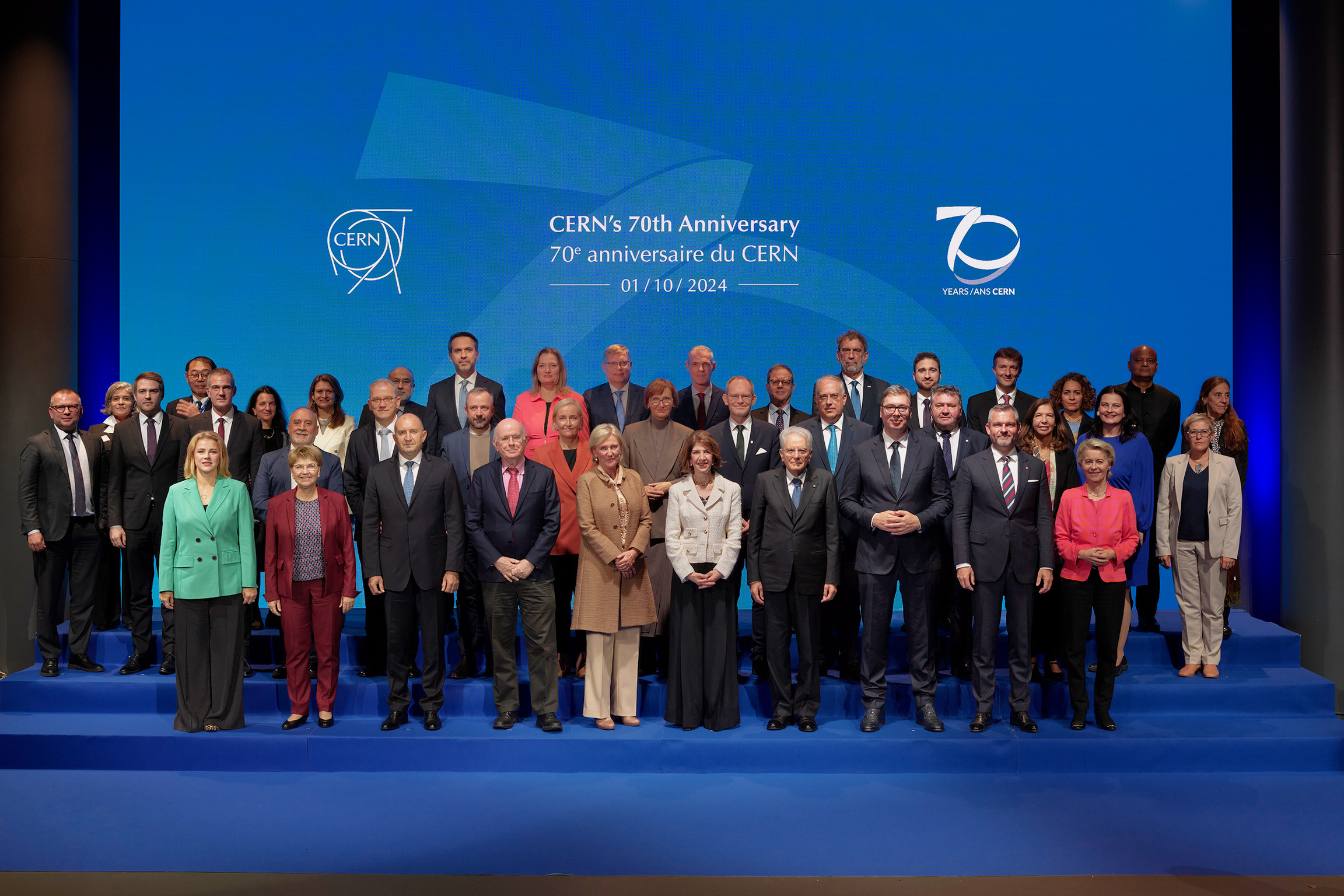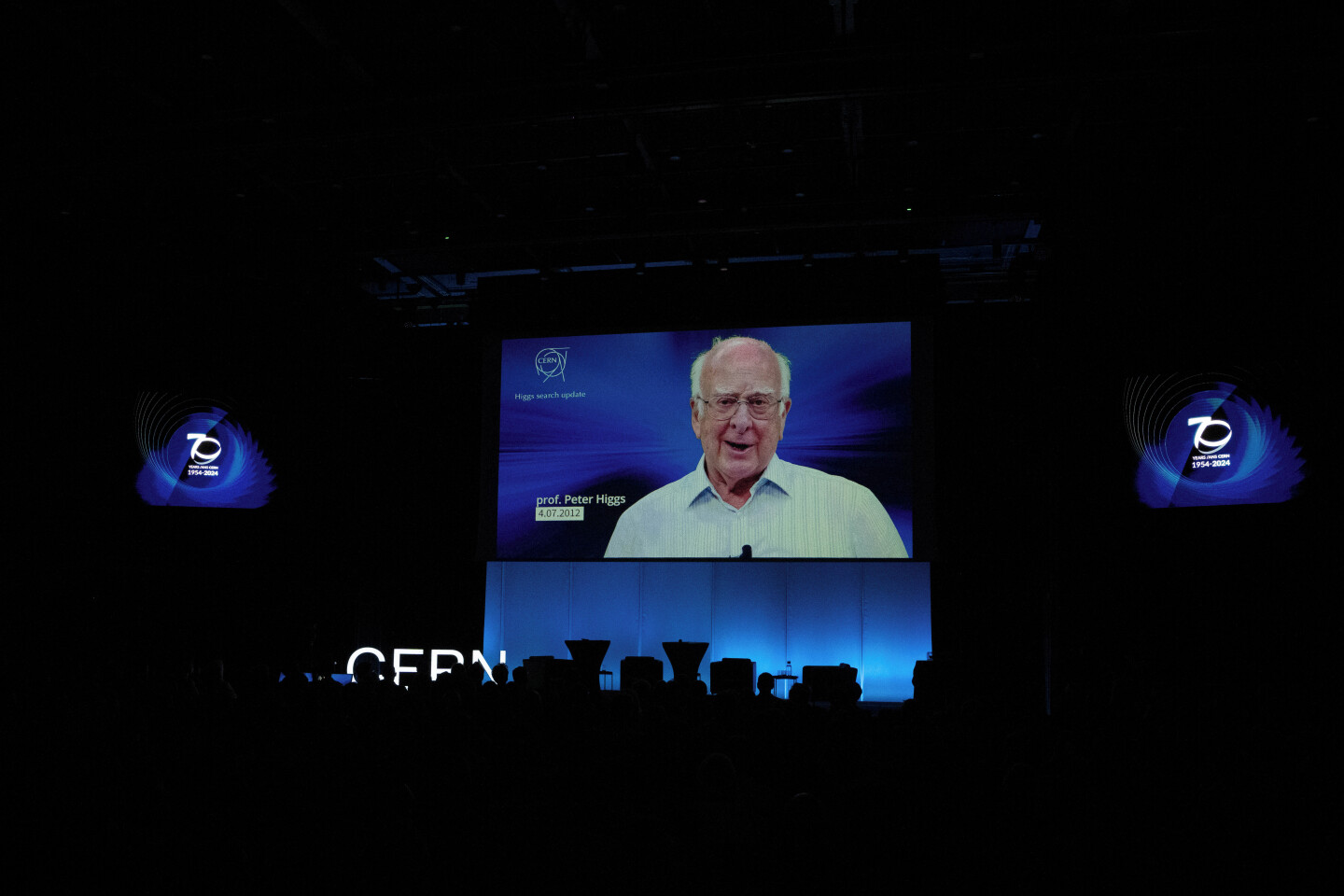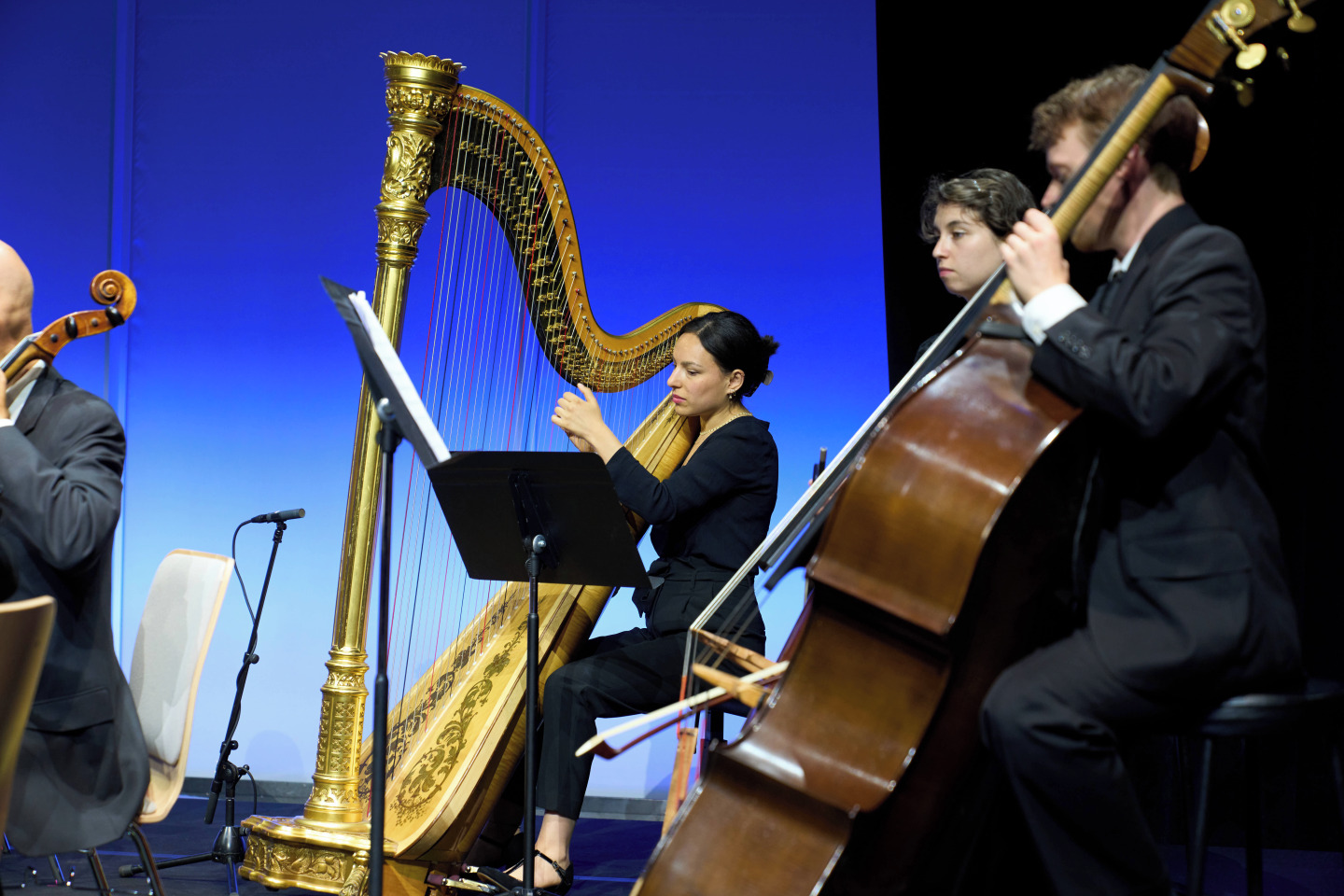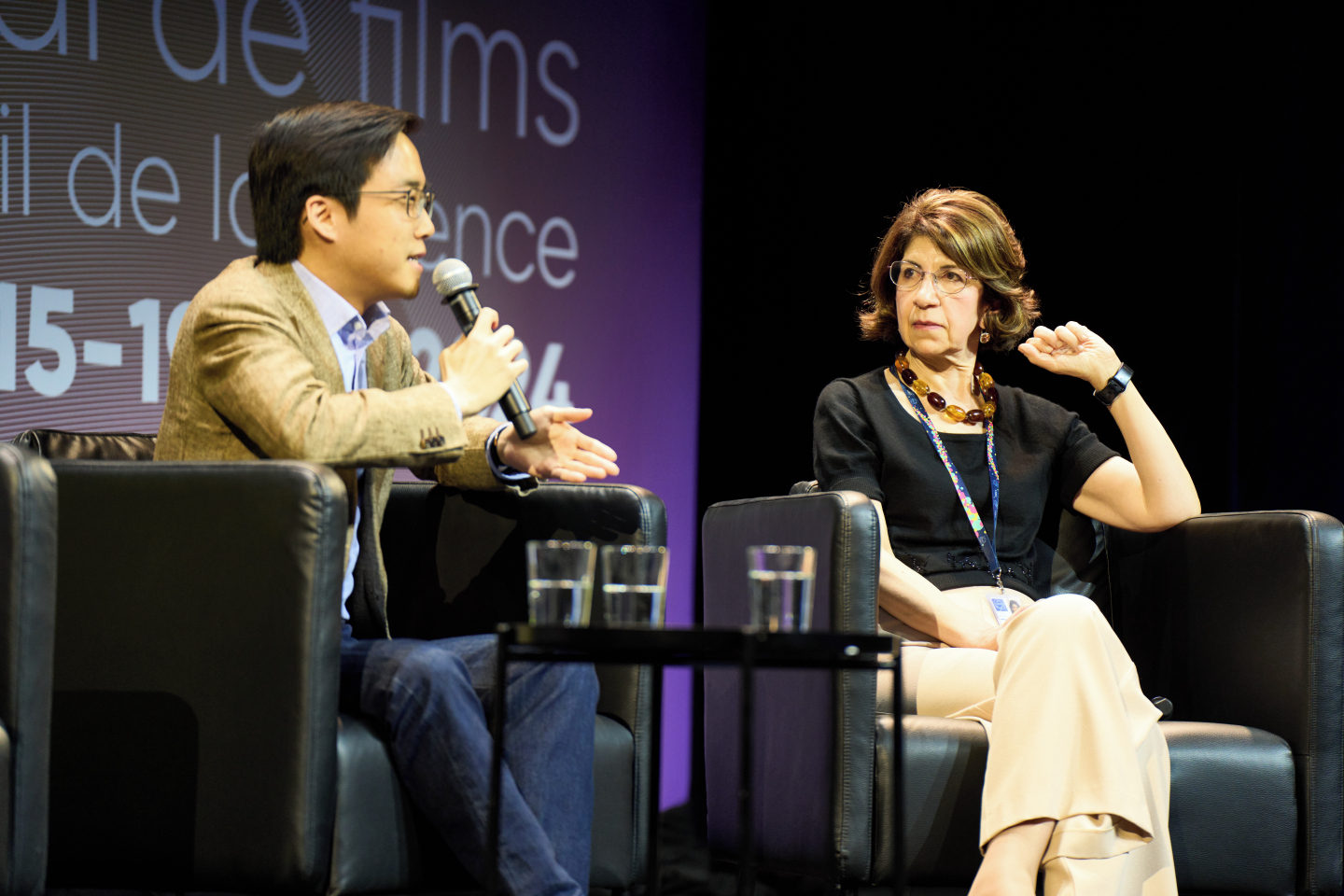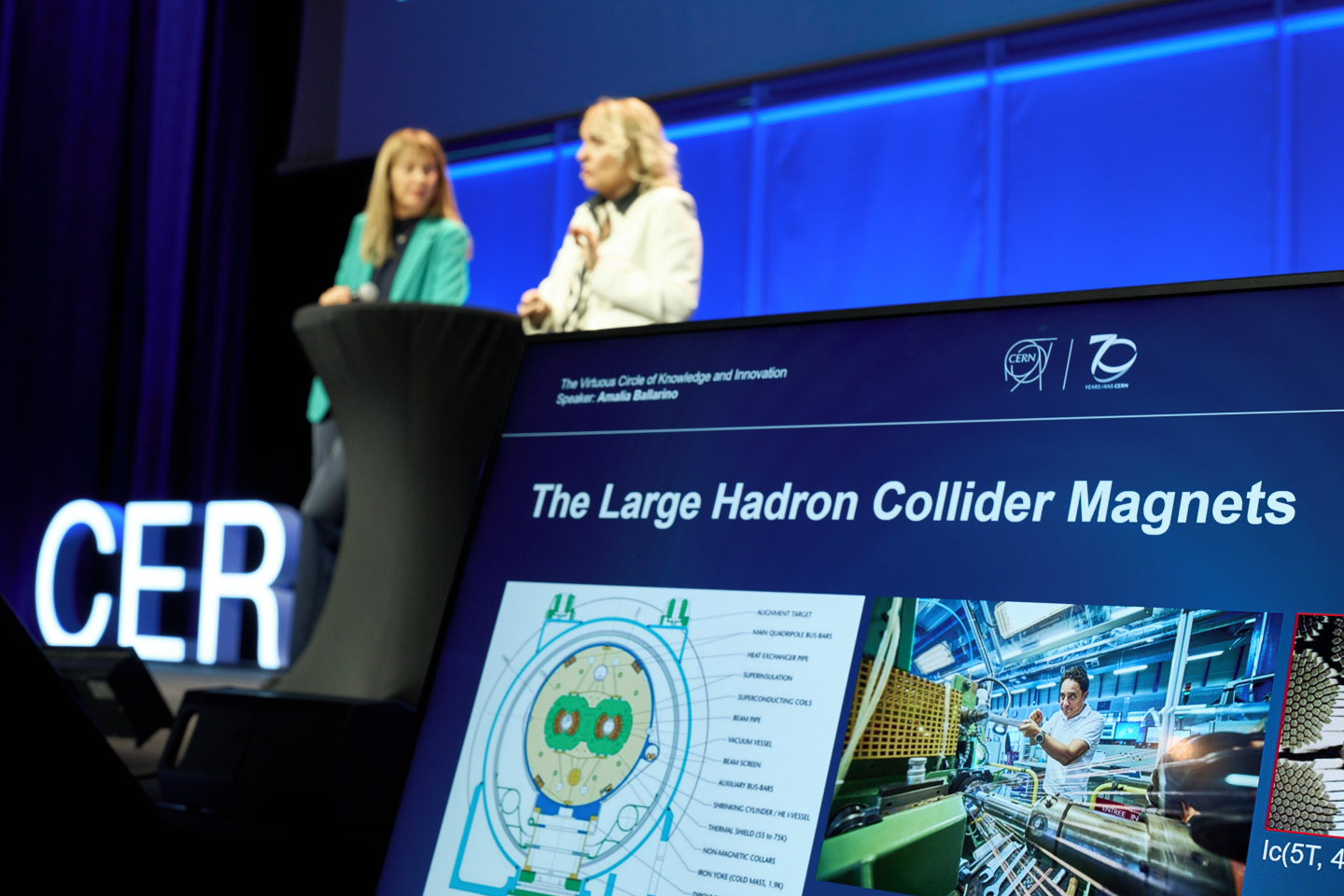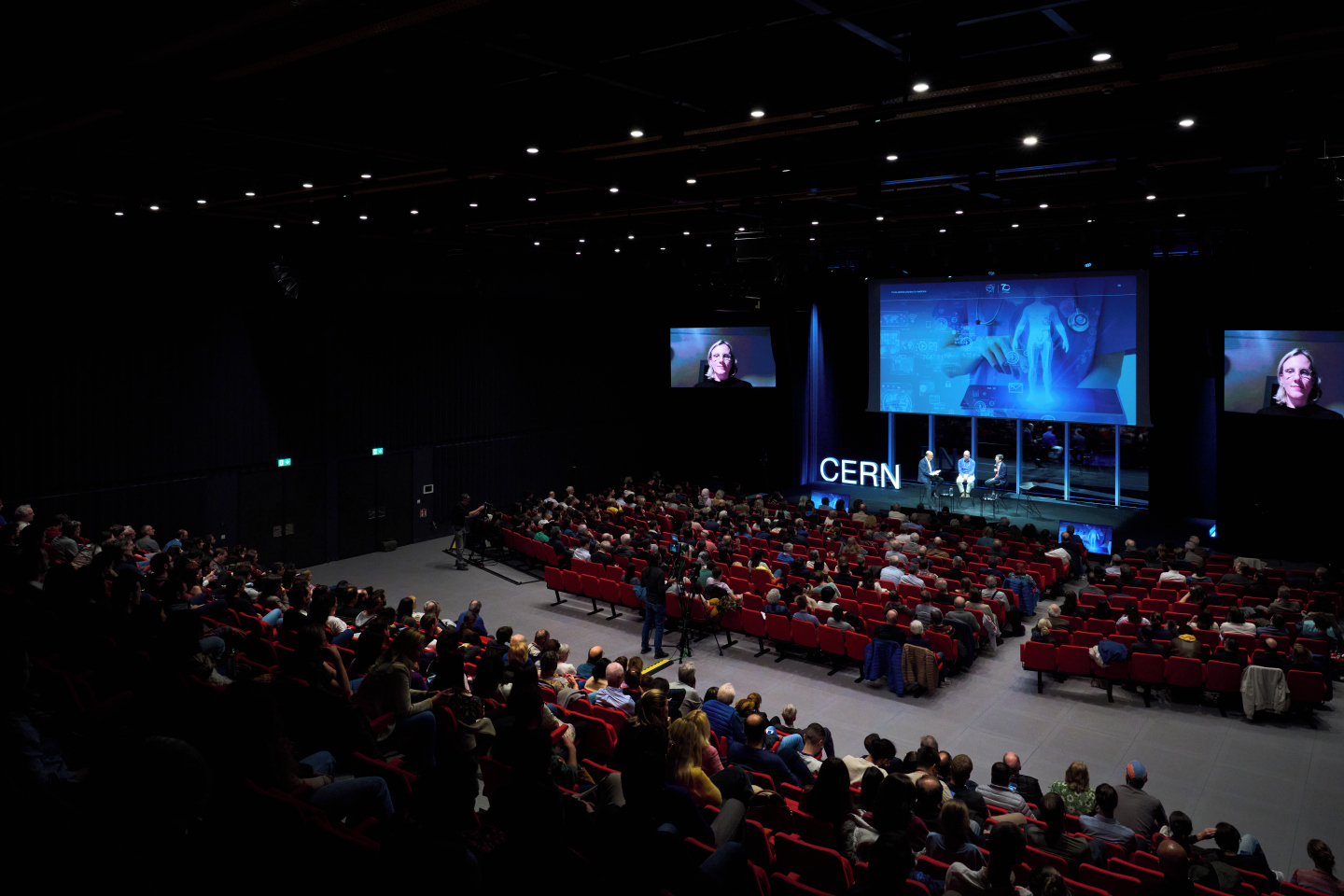Celebrations began with Unveiling the Universe, an event combining science, art and culture in CERN Science Gateway on 30 January.
As part of the celebrations for CERN’s 70th anniversary, the Unveiling the Universe event was a unique meeting of art and science, looking back at CERN’s 70 years of scientific discoveries and looking ahead to the mysteries of the Universe still to be understood.
The day began with the inaugural CERN Art and Science Summit. Artists and physicists delved into the challenges and opportunities of engagement across disciplines in three moderated conversations.
Participants were then invited to visit Exploring the Unknown, the inaugural art exhibition at CERN Science Gateway.
In the evening, renowned scientists, including Nobel Laureate David Gross, engaged in discussions about 70 Years of Discoveries at CERN, a fascinating journey through the evolution of particle physics.
The event concluded with Enigma, a collaborative work by composer Anna Þorvaldsdóttir and artist Sigurður Guðjónsson, which was performed live by the Ensemble Phoenix Basel string quartet.
Speakers
70 years of discovery
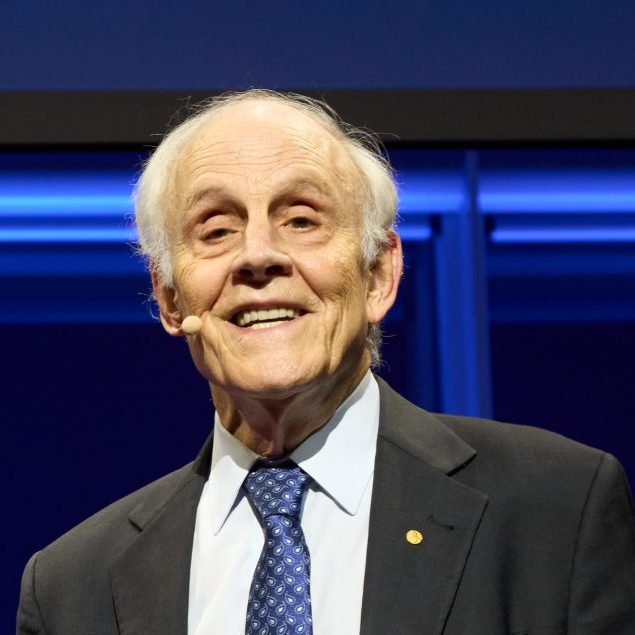
David Jonathan Gross
David Gross is the Chancellor’s Chair professor of theoretical physics and former director of the Kavli Institute for Theoretical Physics (KITP) at the University of California, Santa Barbara.
| Bio |
He received his Ph.D. in 1966 from the University of California, Berkeley. Before joining KITP, he was the Thomas Jones professor of mathematical physics at Princeton University. Gross was awarded the 2004 Nobel Prize in Physics (with Politzer and Wilczek), “for the discovery of asymptotic freedom in the theory of the strong interaction.” Other awards include: Sakurai Prize, MacArthur fellowship, Dirac Medal, Oskar Klein Medal, Harvey Prize, High Energy and Particle Physics Prize (European Physical Society), Grande Médaille d’Or (French Academy of Sciences). Memberships include: National Academy of Sciences, American Academy of Arts and Sciences, American Philosophical Society, Indian, Chinese and Russian Academies of Science. In 2020, he became Past President of the American Physical Society.
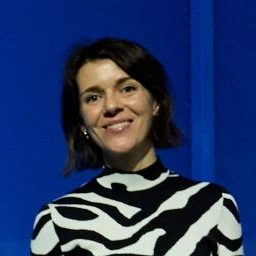
Djuna Croon
Djuna Croon is a researcher in theoretical particle physics, astro-particle physics, and cosmology.
| Bio |
She searches for hints of new particles and dark matter in supernova explosions, black hole populations, exoplanets, microlensing data, and signals from the early Universe. Currently an Assistant Professor at the IPPP – Institute for Particle Physics Phenomenology at Durham University, Croon has held posts in Canada and the United States. She is an enthusiastic science communicator, and committed to making academia more inclusive.
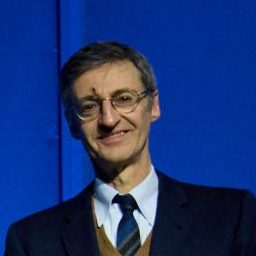
Gian Francesco Giudice
Gian Guidice is a theoretical physicist at CERN and the current Head of the Theory Department.
| Bio |
Giudice’s research deals with the formulation of new theories that extend our present knowledge of the particle world toward smaller distances, and how these theories can be applied to cosmology in order to describe the early stages of the universe. He has played an active role in studying the physics potential of particle accelerators, supporting and advocating several new projects at CERN and in other laboratories worldwide. He is the author of several popular science books, which are part of his many activities in science outreach.
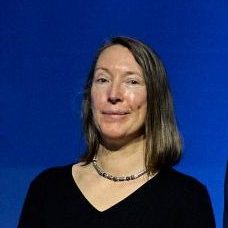
Tara Shears
Tara Shears is a Professor of Particle Physics at the University of Liverpool, where she leads a group performing research testing the limits of the Standard Model, the best theory of the subatomic universe.
| Bio |
Her group uses the LHCb detector at CERN to seek answers for the reasons that there is so little antimatter in the universe. Shears enjoys finding ways to explore and communicate her science with the public, through talks, interviews, writing, collaborating with novelists and artists, including in Arts at CERN’s programmes, and creating particle physics exhibits.
